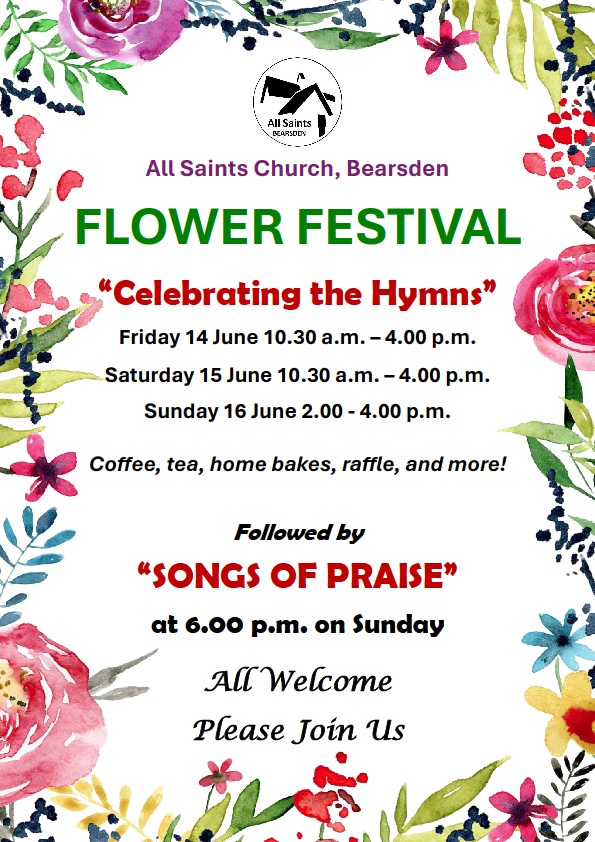“Each person should use whatever gifts they have received to serve others faithfully, administering God’s grace in its various forms.” (1 Peter 4:10)
What we offer to God and each other is at the heart of a new initiative we are launching at All Saints – h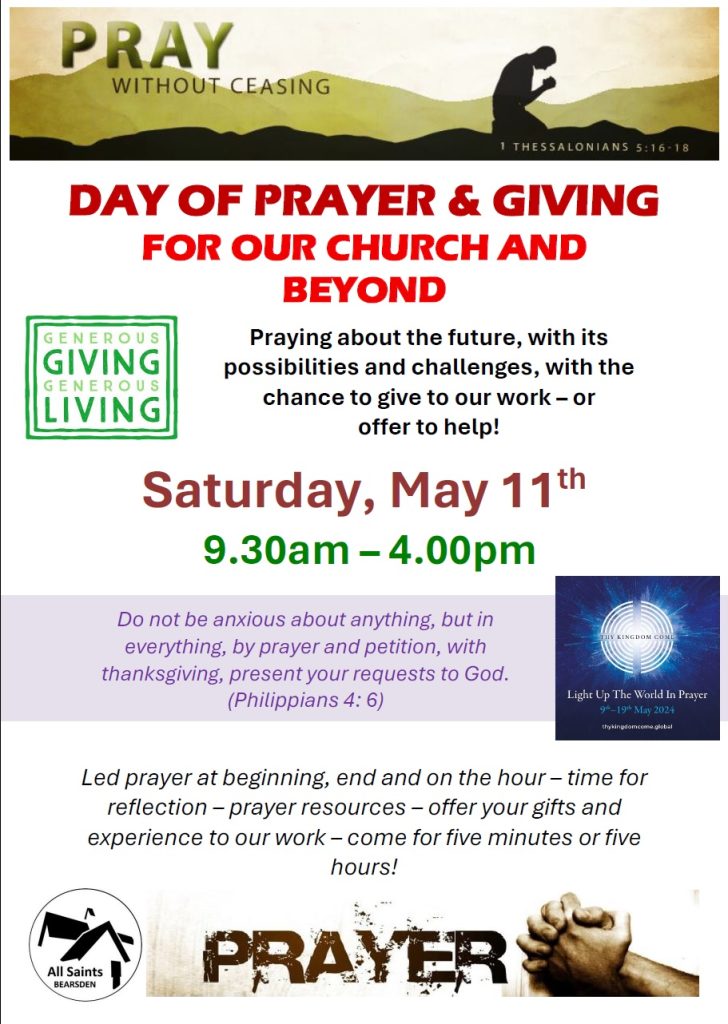 ow we offer our time, talents and treasure and how we respond to God and those around us in prayer.
ow we offer our time, talents and treasure and how we respond to God and those around us in prayer.
“Generous Giving, Generous Living” combines the thinking behind a stewardship campaign with encouragement to be people of prayer as we look ahead together as God’s people at All Saints within this community of Bearsden and United Diocese of Glasgow and Galloway as part of the Scottish Episcopal Church.
The Vestry firmly believes that if we want to change, grow, be refreshed, and face the challenges of the future as well as deal with the practical issues of the present we need to set aside some time to pray together, reflect on where we are and where we’re going, and ask if you might be willing to increase your giving, make special one-off donations when you are able, plan to leave a legacy, or offer yourselves in some kind of service to the church – whether that be going onto a reading or prayer rota, boosting our choir numbers, serving on the Vestry, developing new work with young people, assisting at Sunday services and in many other ways.
Or you might consider becoming an All Saints Prayer Warrior, taking time out every day to pray for a particular aspect of our church life and ministry.
“Generous Giving, Generous Living” is a great phrase because it reminds us that stewardship isn’t all about giving what we have, but it’s more about living to the full and benefitting from the life God has called us to. Paul writes to Timothy: “God richly provides us with everything for our enjoyment.. do good, be rich in good deeds and be generous and willing to share… and take hold of the life that is truly life.” (1 Timothy 6: 17-19). That’s a very clear call to leaders to teach people how to live generously. It’s easy to follow that thinking through to what Jesus says in the Sermon on the Mount: “Seek first his kingdom and his righteousness and all these things will be given to you as well.”
Our initiative isn’t principally about encouraging you to unlock your wallets – it’s about unlocking your generosity and calling for a personal response where you think hard practically and prayerfully about what you give to God, to the church, to the community of your gifts, your finances and your life.
We are launching this initiative on Saturday, May 11th, with a Day of Prayer and Giving in church from 9.30am-4.00pm. The day will start with a short Morning Prayer and end with Evening Prayer and on each hour there will be a short time of led prayer. In between the church will be open for you to come and pray, using a variety of resources. You will find our new prayer sheet with this magazine or available in church to help you, there will be other printed material to use as a springboard to prayer, you may wish to light a candle as a symbol of your prayer, or you may wish to be quiet and listen to what God might be saying to you.
There will be an opportunity to make a financial donation to our church work – we welcome anything, big or small – and there will be paper available for you to let us know your name and your interests or experience and if there is anything you feel you might be able to offer practically to us as a church.
It’s all about looking beyond the present, and looking beyond how you present yourselves and what you present to God and others. Is it your desire to do good with what God has given you in terms of your wealth, your precious time or your talents? Is it our desire as a church to do good with what God has so graciously provided? Whatever the Lord has entrusted to us, can we say that we are using it to do good? If we use our resources to invest in the lives of others and to advance the gospel, we are living life to the full and storing up treasures in heaven. When we use our resources to honour God, not only are we laying up treasures in heaven for ourselves, but we also point others to Christ. In the process we experience a more rewarding and fulfilling life on this earth.
Part of the message is about money and financial wealth. We do need to raise money just to pay our bills, to pay the Rector’s stipend, to look after our buildings, to develop all aspects of our ministry and more but that isn’t the full story. The bigger picture is about encouraging everyone to give and live generously as part of who we are as Christians and as members of All Saints and as part of the Church in Bearsden and beyond.
“If my people, who are called by my name, will humble themselves and pray and seek my face and turn from their wicked ways, then I will hear from heaven, and I will forgive their sin and will heal their land.” (2 Chronicles 7:14)
Whether you can come for five minutes or five hours on May 11th, please do make an effort to be part of this important event, as we seek to undergird our hopes and plans with prayer, seeking to give and live generously in all things and striding out in God’s name with confidence and hope. Giving and living a generous life isn’t just about what we give and how we live but about experiencing the fullness of life that our generous God gives to us.

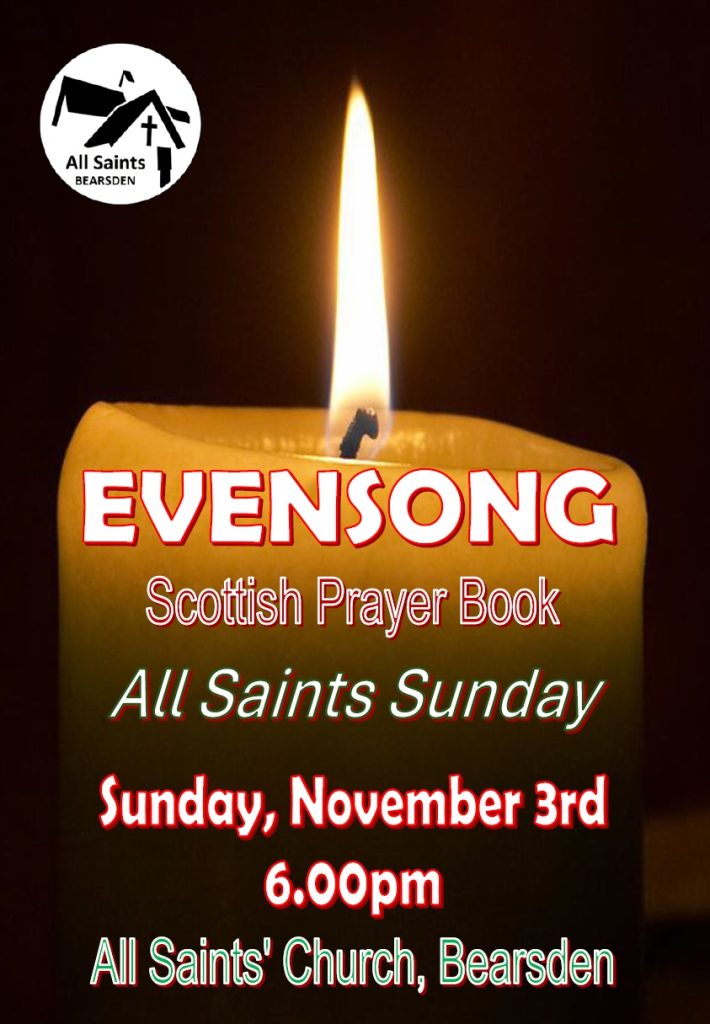
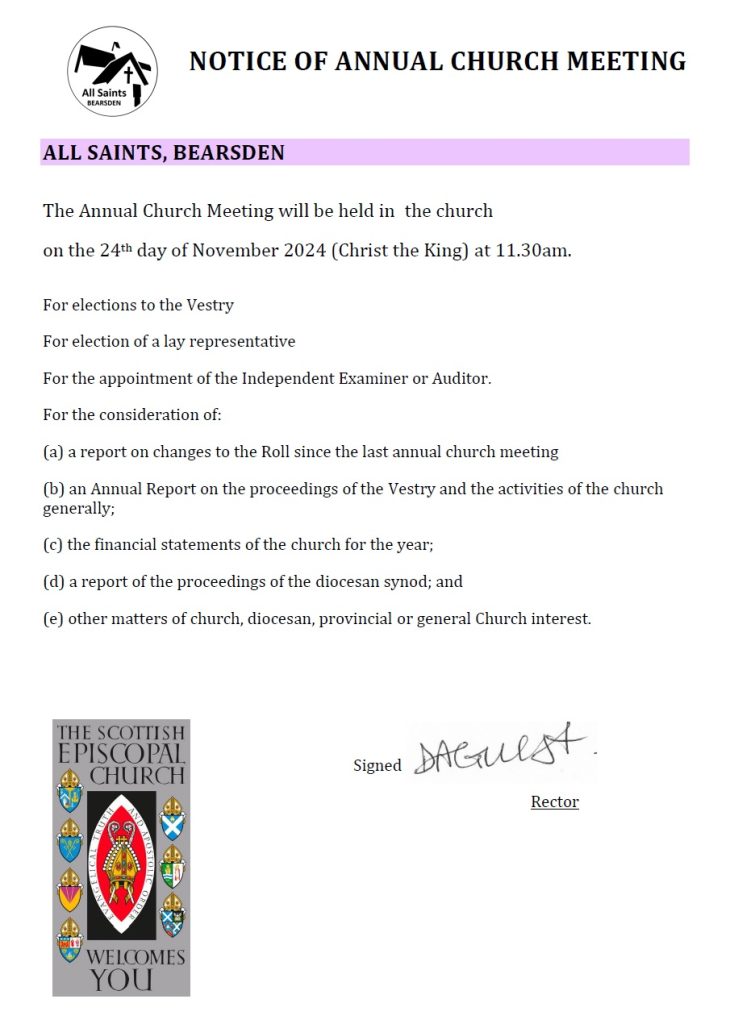

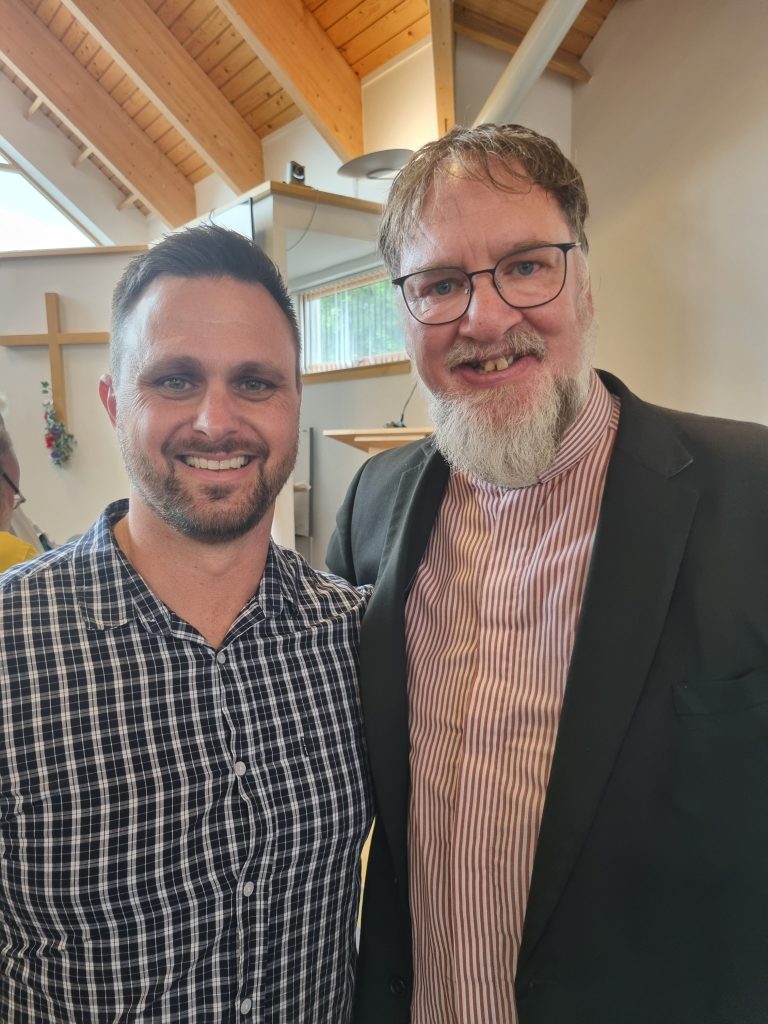
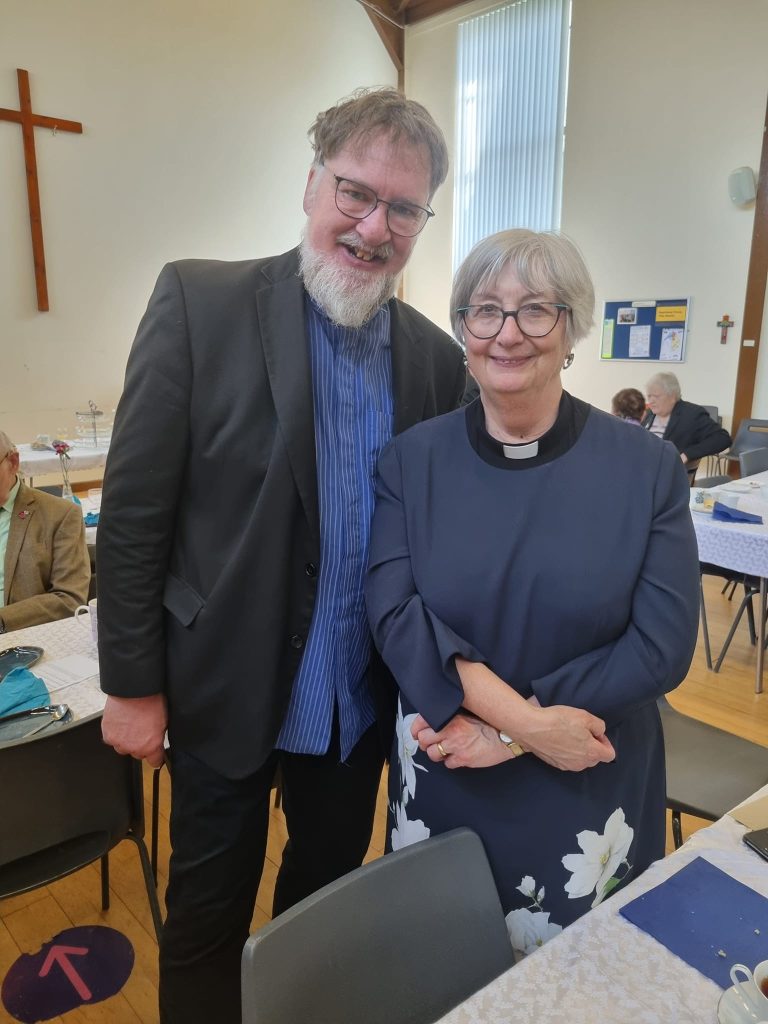 d Charge, wh
d Charge, wh